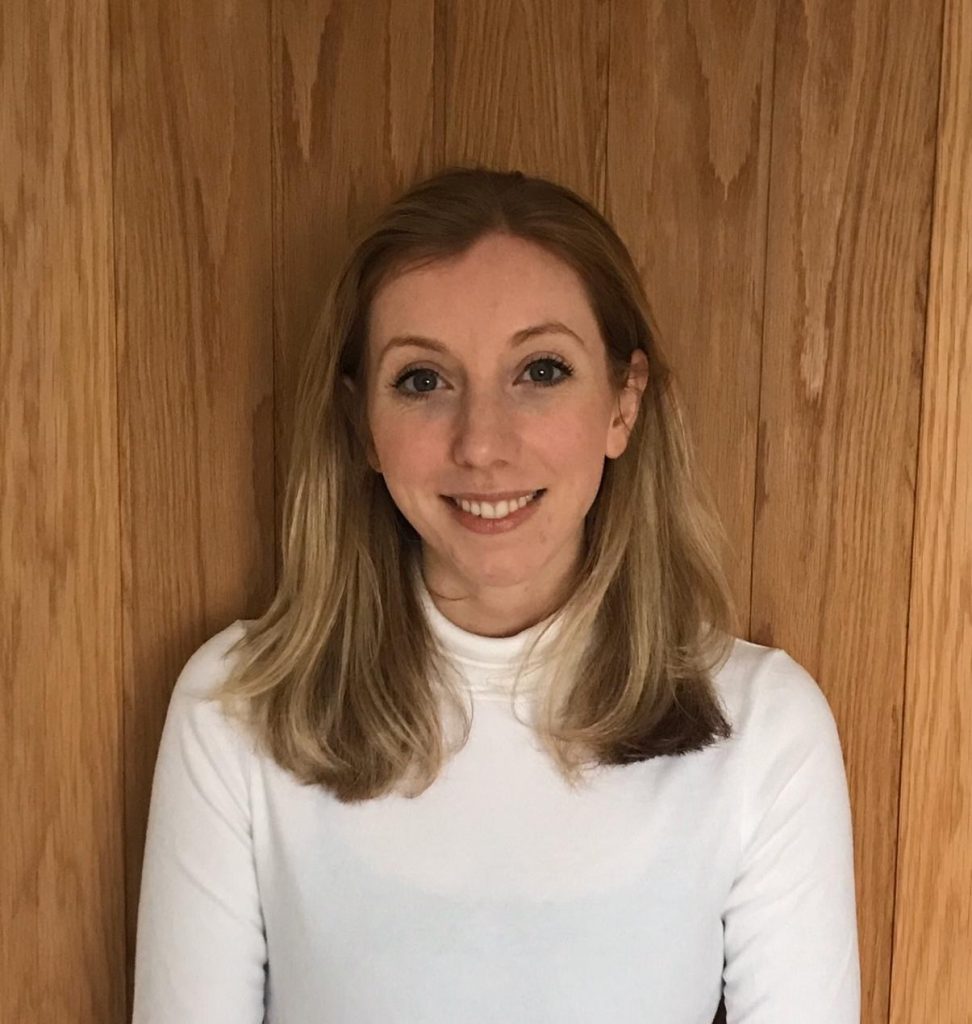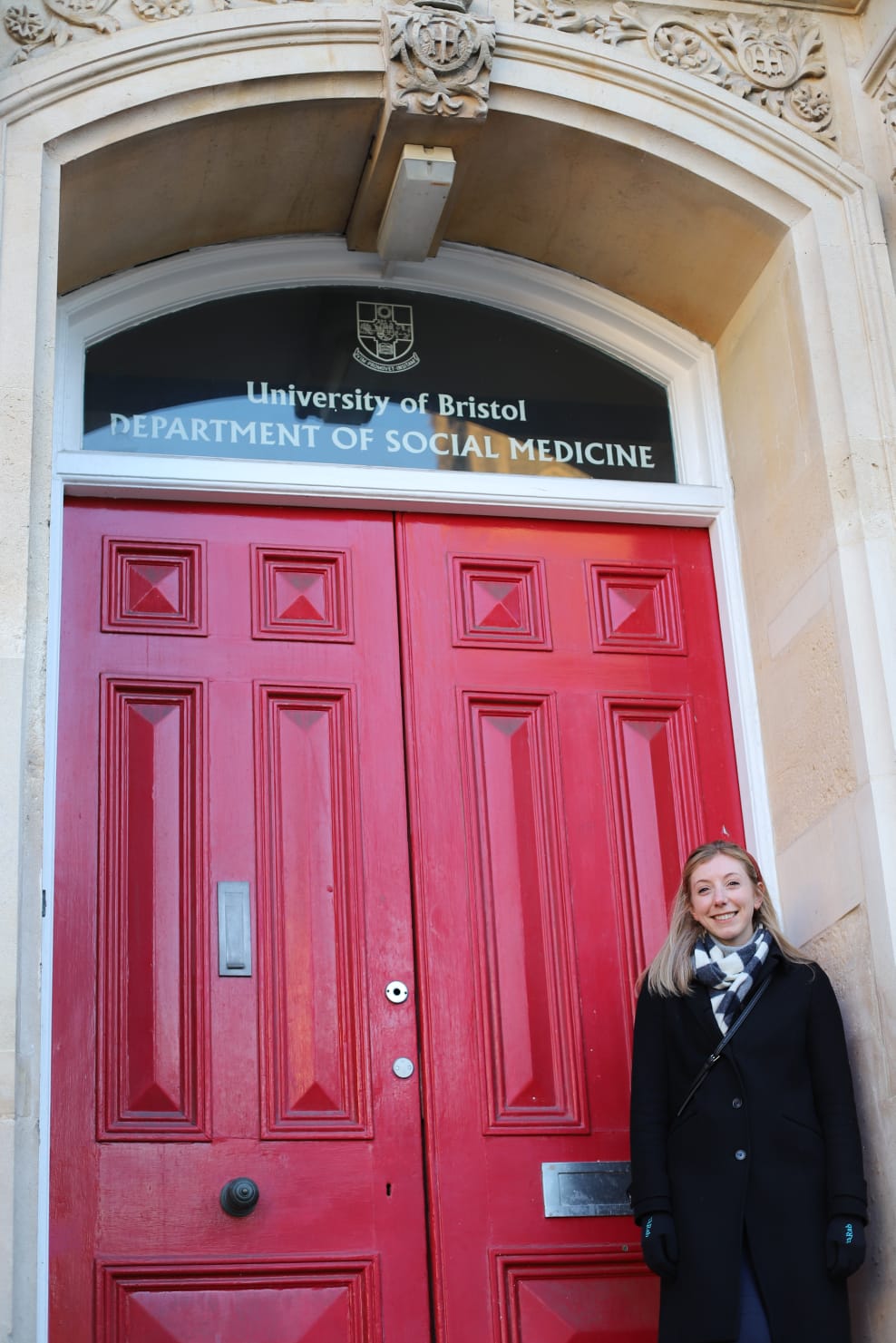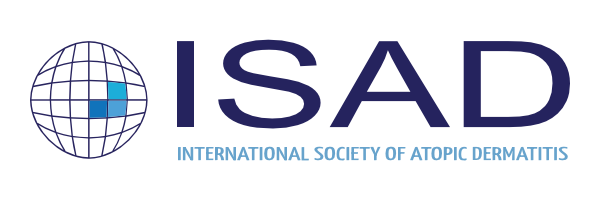The following three candidates received the first ISAD research awards:

Catherine DROITCOURT 
Rosie VINCENT 
Linde de WIJS
- Catherine DROITCOURT
- Rosie VINCENT
- Linde de WIJS
Catherine DROITCOURT
University Hospital of Rennes, France
December 2020 update:
After my PhD, I have had the opportunity to work at Gentofte University Hospital (in Denmark) in the Jacob Thyssen’s team for almost one year.
I have special interest in Atopic Dermatitis and I belong to a research team that conducts epidemiological studies by using the French National Health Insurance database which covers 98% of the 66-million French population.
During my stay in Denmark, I have conducted two epidemiological studies on risk of systemic infections among adults and children with atopic dermatitis by using the Danish registries. This project gave me the opportunity, among other things, to work on different extensions of the Cox regression model using for recurrent events.
I was in Denmark at the beginning of corona crisis with my three children. Even if corona has made things more difficult, I was able to work at home with access to the Danish registries and thus advance my work. However, it was a bit difficult not to see my Danish colleagues every day as before.
I thank you Jacob Thyssen and his team for this great professional experience.
February 2020:
I sincerely thank you the ad hoc jury of the International Society of Atopic Dermatitis for this generous grant.
After my residency in Dermatology, I have the privilege and the great honor to work with Professor Alain Taïeb as senior resident in Bordeaux, France. My high interest for atopic dermatitis grew at that time.
I’m now assistant professor in the Dermatology Department of the University Hospital of Rennes, France. I am dedicated to pediatric dermatology and inflammatory dermatoses. I have recently defended my PhD Thesis in Epidemiology, presenting a body of works using large-scale national health-insurance data to investigate suicidal and psychiatric risk under isotretinoin for severe acne. In addition, I’m the national coordinating investigator of a French multicenter academic randomized controlled trial on phototherapy and vitamin D in atopic dermatitis.
Atopic dermatitis has my strong interest in particular studies based on nationwide databases or registers. I have started a very exciting fellowship in Jacob Thyssen’s team, in Copenhagen, Denmark, for developing an epidemiologic project on atopic dermatitis and risk of systemic infections that is in line with both my clinical domain and epidemiological background. This is a unique opportunity to create closer links between European teams doing epidemiologic research in Dermatology and to benefit from the experience of conducting epidemiological studies from the Danish registries.
I thank you again the members of ISAD for their support.
Rosie VINCENT
University of Bristol, NHS Foundation trust, UK
December 2021 update: publications
Rosie Vincent 1 2 , Stephanie J MacNeill 3 , Tom Marrs 4 5 , Joanna Craven 6 , Kirsty Logan 7 , Carsten Flohr 8 , Gideon Lack 9 10 11, Suzana Radulovic 4 5 , Michael R Perkin 12 , Matthew J Ridd 1 13
Guidance on cow’s milk allergy may be fuelling overdiagnosis in infants, study finds
BMJ 2021; 375 doi: https://doi.org/10.1136/bmj.n3037 (Published 08 December 2021)
Cite this as: BMJ 2021;375:n3037
November 2020 update:

I am very grateful for the fantastic opportunity the ISAD Research Fellowship has given me. I have developed my knowledge of clinical research including in statistical methods, and have had the chance to build my leadership and teamworking skills while working with my co-investigators and my supervisor, Dr Matthew Ridd. My project is based in the Centre of Academic Primary Care, Population Health Sciences, University of Bristol. I delayed my start date to complete my Core Medical Training and to help with the NHS response in the first wave of the pandemic. Due to COVID-19 we embraced working from home and all meetings have been virtual. My project title is ‘An Assessment of the Guidance for Cow’s Milk Allergy Diagnosis in Infants’, which is a retrospective review of the data from the 2016 ‘Enquiring About Tolerance’ (EAT) study. I plan to finish this next month. Challenges I have faced during the project include working with very large data set and reaching consensus expert opinion on the best matches for each item of the diagnostic guidance, when compared to the EAT study data. This was needed in order to dichotomise the variables. I plan to utilise and build on my new skills in further research projects and ultimately go on to complete a PhD, as this opportunity has confirmed that I am going to pursue an academic career in Dermatology.
February 2020:
While working at the University of Bristol NHS Foundation Trust as a Core Medical Trainee I have been researching the uptake of core outcome measures in treatment trials for Atopic Dermatitis (AD).
I am interested in AD because it is highly prevalent in our population and it can have a considerable impact on patient quality of life. There is uncertainty regarding the symptoms of Cow’s Milk Allergy (CMA) in children with AD.
I want to conduct a diagnostic-accuracy study to improve the diagnosis and treatment of CMA in infants, using large data sets which will be hosted by the University of Bristol, UK. Being accepted for the fantastic ISAD research fellowship has allowed my project to happen, and I am very excited to start it this year.
Linde de WIJS
Erasmus MC, Rotterdam, The Netherlands
March 2021 update:
I am happy to let you know that our first article resulting from my research fellowship in Japan has been accepted for publication in the BJD.
You can find it here: pubmed.ncbi.nlm.nih.gov/33657668
December 2020 update:

First of all, I am very thankful for the opportunity to investigate the pro-active treatment of AD in Japan, the role of TARC in this treatment, and differences in AD (treatment) between Japan and the Netherlands. During my fellowship at the Osaka Prefectural Medical Center, we initiated our study investigating the differences between Japanese and Dutch AD patients leading to interesting results which will soon be shared. Besides, I have gained scientific and clinical experience in the use of TARC in daily practice, which is used as a tool for pro-active treatment of AD. We look forward to a fruitful and long-term collaboration, with prospective studies to further investigate this interesting topic. I am very grateful for the collaboration with dr Yoko Kataoka and dr Rai Fujimoto, who gave me a warm welcome and made sure i got the most out of my fellowship.
February 2020:
My research as a PhD-student at the Erasmus University MC (Rotterdam, The Netherlands) is centered on atopic dermatitis care in daily practice. AD gained my interest because of the diversity of the disease, but most of all because of the major and intense impact it can have on patients’ lives.
Until now, one focus of our research team was evaluation of dupilumab treatment in a real life setting, considering the effectiveness and specific side effects including paradoxical facial erythema. Additionally, we are really interested in the role of serum biomarkers in measuring and monitoring disease activitiy.
Recently, I started my research fellowship in the Osaka Habikino Medical Center (Osaka, Japan), in collaboration with Kyoto University. Here, serum TARC levels are being used routinely in daily practice as a biomarker for disease severity and as an instrument to reach tight-control, since 2008. During my research fellowship, I will further investigate the role of TARC in the pro-active treatment of AD in daily practice.
I am very excited for being awarded with this ISAD research fellowship grant and want to thank ISAD for the support to make all this possible.

